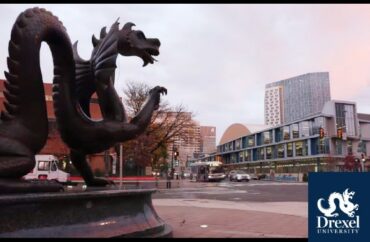
Declining enrollment and layoffs are part of a larger trend at higher education institutions
Drexel University is laying off 60 employees this fall, citing budget cuts due to a decrease in student enrollment and increased operating costs.
The cuts at the private Philadelphia institution, announced late last month, are part of a larger trend linked to declining enrollment at universities across the country.
“The decision to lay off members of our professional staff is never made lightly,” the university stated in the announcement, Inside Higher Ed reported. “This is part of Drexel’s plan for resolving an approximate 10% imbalance in its operating budget in order to ensure resilience amid financial headwinds facing the higher education sector.”
Will Grogan, a previous program manager of Drexel’s Construction Management curriculum, was among the employees who lost their jobs.
Grogan said he was thankful for his supervisor’s transparency in a conversation with The College Fix on LinkedIn.
“I was very grateful that my supervisor was honest and compassionate about the situation that was outside of either of our control,” he told The Fix.
“I’m leaving behind some fantastic students and priceless colleagues. 6 years and 9 months is the longest I’ve ever been somewhere besides grade school,” he wrote in a LinkedIn post.
In a message to the campus in October, Interim President Denis O’Brien blamed the university’s financial troubles, in part, on the “flawed rollout” of the Free Application for Federal Student Aid.
The revised FAFSA came out three months late and was followed by glitches. The Department of Education estimated approximately 30 percent of college applications were affected, The Fix reported earlier this year.
O’Brien said the university came about 500 students short of its enrollment goal this year, and the decline added $22 million to the current budget deficit.
He attributed “increased investments both in financial aid to promote access and affordability and in student supports to ensure their success and wellbeing, and rising costs associated with doing business” as the main drivers of the university’s budget imbalance.
MORE: College enrollment drops by 1.3 million in two years
Enrollment has been dropping for years at Drexel.
According to data from the Integrated Postsecondary Education Data System through the National Center for Education Statistics, the university’s full-time undergraduate enrollment dropped from 17,481 in the fall of 2012 to 13,651 in 2023, the most recent data available.
The university also saw a reduction in faculty members between 2012 and 2022, from 1,372 to 1,155, according to the data.
Meanwhile, over that same time period, the number of administrative and support staff increased, from 2,243 to 2,415. Administrators and support staff include management, student and academic affairs divisions, IT, public relations, administrative support, maintenance, legal and other non-academic departments.
The Fix contacted two media relations team members from Drexel multiple times by email to ask about the layoffs, including which positions were cut and what the university’s response was to the IPEDS data showing an increase in administrative and support staff, but neither responded.
Meanwhile, in a recent message to the campus, Interim President O’Brein said Drexel has created an “academic transformation” plan that involves cutting $150 million in expenses by 2027 to “achieve sustainable, positive operating margins.”
“Every administrative and academic division was required to cut expenses,” O’Brein stated. “In some cases, those cuts necessitated a reduction in staff positions. In most cases, the reductions were achieved through leaving vacant positions unfilled.”
The university also instituted a pause on non-essential hiring and a voluntary retirement program that includes financial incentives for any faculty or staff considering early retirement.
As a result, 155 have opted to retire early, the university stated in November.
A recent report from Inside Higher Ed indicated that Drexel is not alone. The report attributed declining enrollment and overspending to similar layoffs at Saint Augustine University in North Carolina, the University of Akron in Ohio, the University of Denver, and other schools this fall.
However, Mark Perry, professor emeritus of economics at University of Michigan-Flint, said in an email to The Fix that he does not believe overspending is the main issue.
“The decline in enrollment at Drexel is consistent with a national decline in college enrollment since 2010,” he said.
“I don’t think it’s an overspending problem, it’s a declining enrollment problem at Drexel, consistent with lower overall college enrollment nationwide,” Perry told The Fix.
Undergraduate enrollment declined by about 15 percent between 2010 and 2021, or about 15.5 million students, according to the National Center for Education Statistics.
MORE: Students still waiting for answers months after botched FAFSA rollout
MORE: Some colleges buck low enrollment trend with job-ready training, faith focus
IMAGE: Drexel University
Like The College Fix on Facebook / Follow us on Twitter






Please join the conversation about our stories on Facebook, Twitter, Instagram, Reddit, MeWe, Rumble, Gab, Minds and Gettr.